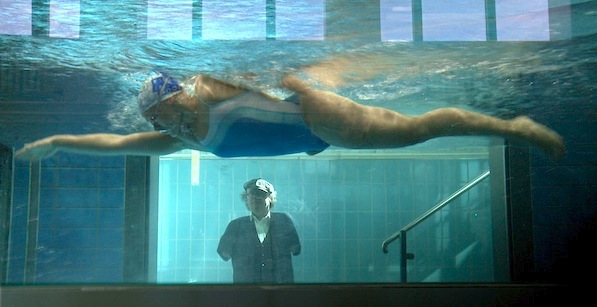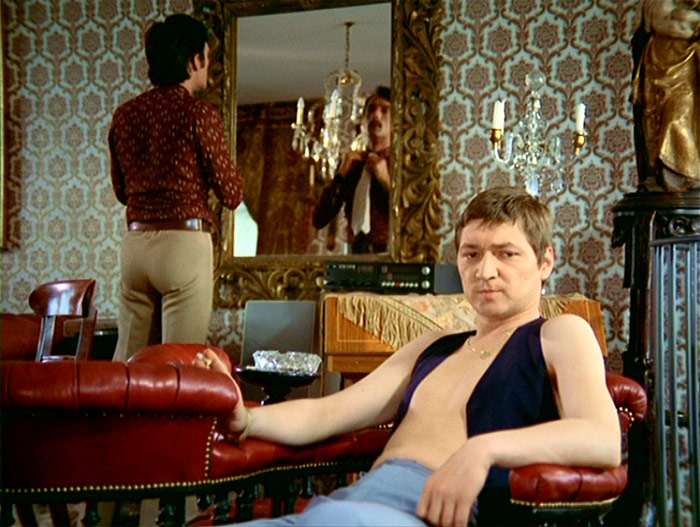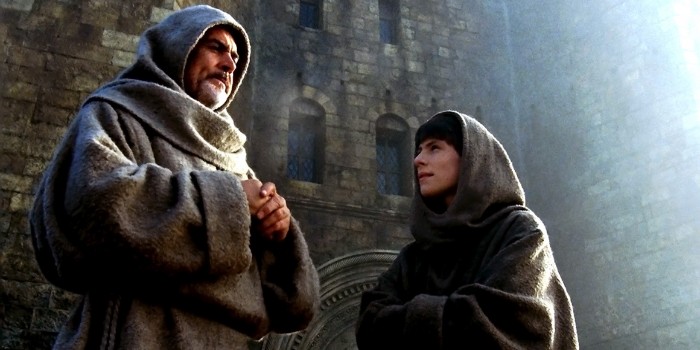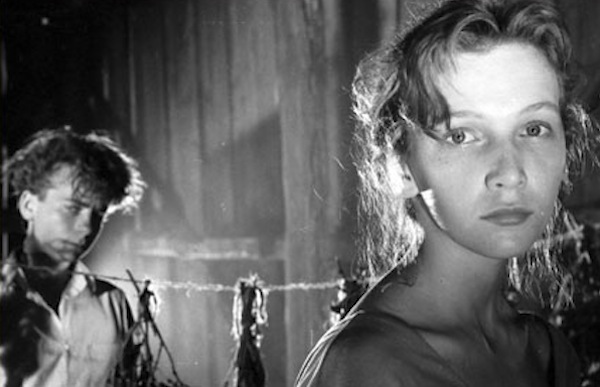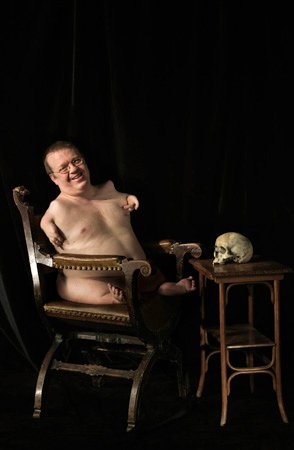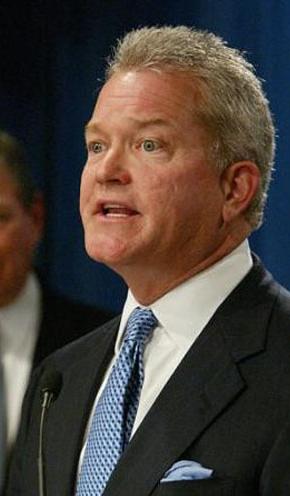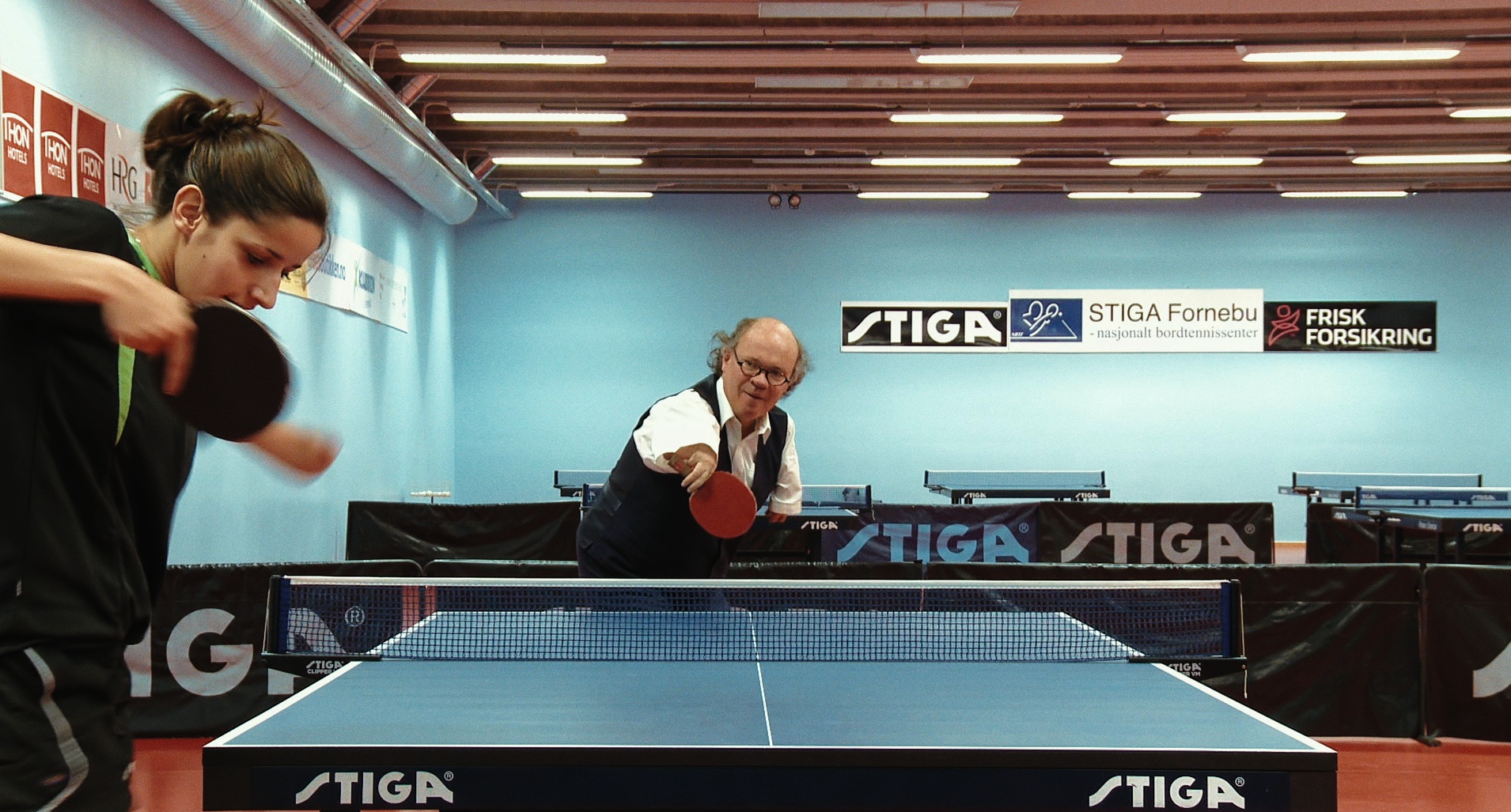If you wanted to look for an example of channeling misfortune into creative work, German director Niko von Glasow would serve that purpose perfectly. Born in 1960, von Glasow was one of the victims of thalidomide, an anti-nausea and sedative drug that was prescribed to help pregnant women with morning sickness. Unfortunately, it also caused number of birth defects—in case of von Glasow, very short arms. Now a filmmaker, von Glasow’s work focuses on disability, its public perception and psychological repercussions. During our wide-ranging conversation at Berlinale 2013, he talked about therapeutic value of his documentaries and expressed some interesting opinions about the military and the Catholic Church.
Keyframe: Your first experience on a film set was with Rainer Werner Fassbinder. Is there anything particular that you learned from him? How did this collaboration influence you as a filmmaker?
Niko von Glasow: I was twenty years old and very innocent. I didn’t know who this guy was. I was trying to get a job in a film industry and there he was in the long corridor of the studio. When he saw me, he shouted: ‘This guy is in charge of beer boxes!’ And if I didn’t carry the beer boxes for a week, I would be fired.
Keyframe: You must be joking.
Von Glasow: No, I’m not. He was a drug addict and a fuckin’ asshole. At least four people committed suicide on his account. Not only was he an asshole, he was a charismatic asshole, which is very dangerous. He was an artist, but a very destructive one. I learned a lot from him. For example, I learned that I’m not here to be nice or to be loved—I’m here to make a movie. However, these days you can’t behave like Fassbinder anymore, because we’re living in a very professional world. Later, when I worked for Jean-Jacques Annaud, I experienced a different work environment. He was friendly; he actually could remember my name and he made movies that were both entertaining and intelligent.
Keyframe: The Name of the Rose is one of my favorites.
Von Glasow: I was a star in it, but they cut me out! I did six weeks of shooting, but my scenes ended up on the editing floor. You can see me for one second in the left corner of the screen. Well, I warned them about my poor acting skills.
Keyframe: You also attended Polish Film School in Lodz. Artistic education can be a very controversial subject—some people even say it destroys young talents by forcing a strict set of rules upon them. Would you agree?
Von Glasow: I have a very clear opinion about that. When I made my first film in Lodz—Wedding Guests—I ran around the set and kept shouting: ‘Don’t try to make art!’ And I still believe you shouldn’t try to make art. Because art is a gift from God, it just happens. If you strive to make art, you’ll end up being pretentious. I have a film school of my own, I teach a lot and I use many young, talented people in my crews. But I’m appalled by film schools. They let students do what they want, and after a couple of years they say: ‘Oh, go out there, do something, try yourself out.’ What a load of crap! When you graduate, you need to earn money and you need to survive people like me, because I will fire those idiots. If you’re not capable of doing your job, you will be sacked. This is not a rosy world of day-dreaming fuckin’ artists, this is film business. It’s a profession. If you want to become a carpenter, you should learn how to deal with wood. If you want to become a filmmaker, learn how to write scripts, how to handle a camera, how to be on time, how to make money. If you’re an artist—good for you, if you’re not—even better.
Keyframe: You have to know your craft first to become a film artist.
Von Glasow: Exactly. I’ll tell you something about Fassbinder, who was an asshole, but also an artist. He knew every camera and every lens. He made big films in six weeks, because he was extremely professional. All great artists mastered their craft perfectly. Picasso had to learn how to draw and paint in a professional way and only then was he able to break the rules and be a great artist. The biggest Polish filmmakers, like Roman Polanski, know their craft inside-out. Are you familiar with Jolanta Dylewska, the cinematographer? She is a star, her knowledge is fantastic and she’s a brilliant artist. When I think about her, I always remember a conversation I had with Krzysztof Zanussi. I asked him about female cinematographers in Poland, and he replied: ‘Women shouldn’t become cinematographers.’ What a mysogynistic asshole!
Keyframe: Let’s talk about your films. What I found interesting about Nobody’s Perfect—probably your most famous film to date—is the idea of photos depicting disabled people. Disability makes you a victim of discrimination, but also a victim of gaze—people either stare at you or cannot bear to look. I think what you tried to do is change that very gaze.
Von Glasow: Yes, I tried to change the way people look at me, but also the way I look at myself. Because if I see myself as a disabled loser, you will also see a disabled loser. But if I see myself as a wonderful person who was given short arms by God to feel special—that’s completely different. It’s so boring to be you. You’re so fuckin’ normal! I am original—you are mundane. That’s the change I was looking for. I wanted to become proud of who I am.
Keyframe: You can fight discrimination on many levels, but there is one I find very problematic—the argument that, after all, ‘we’re all the same.’ No, we are not. It’s not about unification, it’s about accepting our differences.
Von Glasow: You’re right, we’re not the same. But at the same time we are. We’re the same, but we’re amazingly different. I think both statements are true. But you have to say them with love. If you say them with hate or aggression, it’s either bullshit or fascism. It all depends on attitude.
Keyframe: When I was watching how disabled people unashamedly present themselves in Nobody’s Perfect, I remembered another argument, a really stupid one. Whenever there’s a LGBTQ parade in Poland, a lot of people say: ‘I don’t care what they do in bed, they just shouldn’t display their sexuality in public.’ On the contrary, I think they should, because it’s a statement: we’re here, we’re different, get over it.
Von Glasow: There’s also another reason to do it. During Nazi time Polish people were hiding disabled people, Jews, homosexuals. And the only way to leave fascism behind, to heal your wounds is to go out in the street and be openly gay, openly disabled, openly Jewish. One of the most homophobic environments is the military. And why? Because they are all secretly gay. You only join the military in order to shower with naked men.
Keyframe: I guess it’s a very similar phenomena to ‘gay Republican’ in the United States.
Von Glasow: And in the Catholic Church. Not only do they have sex with children, they have sex with each other! They should be ashamed of themselves. Why won’t they allow a female pope for a change?
Keyframe: Zanussi would probably say….
Von Glasow: …that women shouldn’t be eligible for pope? Yes, he probably would, but we shouldn’t pay any attention.
Keyframe: Speaking about your attitude to disabled people—and yourself—in Nobody’s Perfect, I really like the dark sense of humor permeating the film. If we want to treat disabled people like human beings, we should accept their laughter, irony, sexuality and allow ourselves to have fun with them, rather than mock them.
Von Glasow: Humor is the only weapon we have. I deeply reject violence. It doesn’t work. It’s been proven it doesn’t work. War doesn’t work. Hitting your wife doesn’t work. Jesus said: ‘Don’t kill.’ Period. He didn’t add: ‘…unless it’s a Jew or terrorist.’ When it comes to not harming anyone, there can be no compromises. And what can protect us and move us forward is humor.
Keyframe: Maybe all great comedies are kind of weapons—against stupidity, dictatorship, violence, etc.
Von Glasow: That’s true. In the countries with very little sense of humor, like Russia or those depressed Eastern European countries, where everyone is so serious, you can feel a great danger. Lack of humor is a gateway for fascism. In Britain there was no fascism, because they have fantastic sense of humor. Right-wing activists do not possess a sense of humor. Stalinists had absolutely no sense of humor. The only thing they’re good at—fascists, Stalinists, football hooligans—is making a lot of noise.
Keyframe: Since you mentioned football, let’s talk about your new film My Way to Olympia. Nowadays sport is very commercialized. By talking to Paralympics sportsmen and sportswomen, you managed to show the idealistic core of sport competition, which can help you come to terms with yourself and your fears.
Von Glasow: When I started making My Way to Olympia, I was completely certain that sport sucks. I thought Paraolympics was a society’s excuse to have a big, proper party a couple of weeks before and then have a little party to allow the cripples to jump around a bit. When I was making the film, I learned the truth was quite the opposite. The Paralympics is actually much closer to the original ideals of the Olympics, much more about friendship, sportsmanship and not about Pepsi, VIP seats and money. And the laughter, the joy that comes with it! All these people, the helpers, the audience, the sportsmen—they had a ball. It was lovely. And by the way—no violence at all!
Keyframe: I just read in the description of the film: ‘A disabled Niko van Glasow film about Paralympics.’ Are you making a meaningful joke?
Von Glasow: My films are not really slick and perfect. I don’t make commercials. It’s not about ‘Hey, let’s all be nice to each other and to the disabled people.’ No, I make films about disability as a struggle. I feel very insecure myself. For example, when I meet a blind person, I have to say: ‘My arms are right here, a little bit higher.’ It’s very embarrassing. There’s always this question: how to behave with a disabled person. And I’ll tell you how. Firstly, educate your children—tell them not to point their fingers at me and shout: ‘There’s someone with really short arms!’ This actually happened to me during Berlinale, with a child of a famous German actor. The father said to me: ‘My son is just curious,’ to which I replied: ‘No, he’s badly educated.’ Secondly, be honest with your own disability. Don’t behave like you’re Mr. Perfect. You have your disabilities too. I mean, it’s bad enough that you’re Polish.
Keyframe: I have to agree on that one. Sometimes I wish I wasn’t.
Won Glasow: That’s what I mean. And thirdly, if you’re insecure about how to shake my hand, just be honest about your insecurity. Crack a joke or say you don’t know how to do it.
Keyframe: I wasn’t insecure, but I knew about your disability.
Von Glasow: And you had no fear. I’m not contagious. I don’t have AIDS. And even if I had, you could still shake my hand. Shall we go for a smoke now?
Keyframe: I don’t smoke.
Von Glasow: Neither do I. So let’s shake hands and say goodbye.

